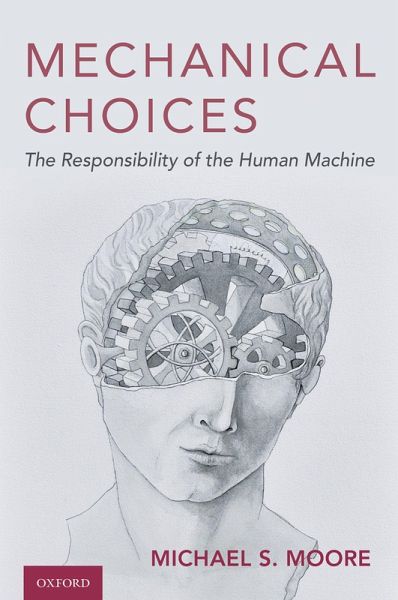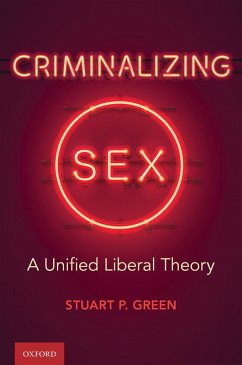
Mechanical Choices (eBook, ePUB)
The Responsibility of the Human Machine
Versandkostenfrei!
Sofort per Download lieferbar
43,95 €
inkl. MwSt.
Weitere Ausgaben:

PAYBACK Punkte
22 °P sammeln!
Mechanical Choices details the intimate connection that exists between morality and law: the morality we use to blame others for their misdeeds and the criminal law that punishes them for these misdeeds. This book shows how both law and morality presuppose the accuracy of common sense, a centuries-old psychology that defines people as rational agents who make honorable choices and act for just reasons. It then shows how neuroscience is commonly taken to challenge these fundamental psychological assumptions. Such challenges--four in number--are distinguished from each other by the different neu...
Mechanical Choices details the intimate connection that exists between morality and law: the morality we use to blame others for their misdeeds and the criminal law that punishes them for these misdeeds. This book shows how both law and morality presuppose the accuracy of common sense, a centuries-old psychology that defines people as rational agents who make honorable choices and act for just reasons. It then shows how neuroscience is commonly taken to challenge these fundamental psychological assumptions. Such challenges--four in number--are distinguished from each other by the different neuroscientific facts from which they arise: the fact that human choices are caused by brain events; the fact that those choices don't cause the actions that are their objects but are only epiphenomenal to those choices; the fact that those choices are identical to certain physical events in the brain; and the fact that human subjects are quite fallible in their knowledge of what they are doing and why. The body of this book shows how such challenges are either based on faulty facts or misconceived as to the relevance of such facts to responsibility. The book ends with a detailed examination of the neuroscience of addiction, an examination which illustrates how neuroscience can help rather than challenge both law and morality in their quest to accurately define excuses from responsibility.
Dieser Download kann aus rechtlichen Gründen nur mit Rechnungsadresse in A, B, BG, CY, CZ, D, DK, EW, E, FIN, F, GR, HR, H, IRL, I, LT, L, LR, M, NL, PL, P, R, S, SLO, SK ausgeliefert werden.













